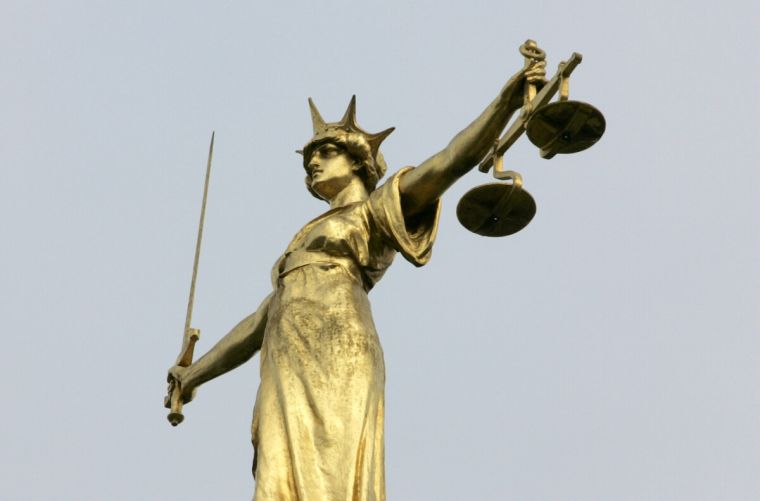Let justice roll down like waters: Why the social gospel is the Gospel
We're hardwired for stories. From Hans Christian Andersen to Netflix, stories tell us so much about who we are and the world around us.
Serial, the award-winning radio programme, launched its third season today. It's a regular podcast based on investigative journalism that releases an episode each week. This season it focuses on the US justice system.

'Every case Emmanuel and I followed, there came a point where we thought: "No, this can't be how it works." People who work in the system, or have been through the system, they know this. But millions more people do not. And for the past year I've had this urgent feeling of wanting to kind of hold open the courthouse door and wave people inside. Because things are happening – shocking things, fascinating things – in plain sight.'
It could be our justice system they're talking about. From a recent interview in the Financial Times: 'Walk into any criminal court in the land, writes the Secret Barrister, and you will hear complaints about the system failing at a most fundamental level thanks to "a chronic lack of staff and funding abetted by successive cynical governments..." The verdict is damning: 'Every component of the system is infiltrated to some degree by negligent, reckless or malicious maladministration.'
And of course this doesn't end in court. At HMP Bedford, 'The prison was overcrowded and infested with rats and cockroaches, the inspectors found, and there was little purposeful activity for inmates.' Bedford is now the fourth prison to be subject to the urgent notification protocol, after Exeter, Nottingham and Birmingham.
This summer prisons across 17 different US states experienced hunger strikes, labour strikes, and sit-ins. Protest organisers have described their prisons system as 'modern day slavery'.
We like to think that our justice system is taking care of business for us, though. Whatever the headlines, the policies or policing, we like think that the good guys (us) are safe because the bad guys (them) will be locked up. That's justice, right?
However, we seem to have uncomfortable relationship with justice at the moment. Archbishop Welby has never been so vocal on the subject, reminiscent of Martin Luther King – one of history's greatest advocates against injustice – in his 'let justice roll down...' speech to the TUC recently. While on the other side of the Atlantic a statement against any involvement with justice issues has gained some ground – with fears that 'dangerous ideas and corrupted moral values will spread their influence into other realms of biblical doctrines and principles'.
Isaiah 61 could be said to be Christ's job description. He read it in Luke 4 in his first sermon confirming that it was fulfilled in him:
The Spirit of the Sovereign Lord is on me,
because the Lord has anointed me
to proclaim good news to the poor.
He has sent me to bind up the brokenhearted,
to proclaim freedom for the captives
and release from darkness for the prisoners,
to proclaim the year of the Lord's favour.
What do we think the good news – the gospel – is? Is it a purely spiritual message? Or a radical manifesto for those who need it most?
Why do we find it so hard to believe it could be both? Why do we find the connection between salvation and social justice so challenging? Why is it so offensive to talk about religion and politics in the same sentence? Do we imagine that gentle Jesus meek and mild was just having a bad day when he overturned the tables in the temple? Or that he reluctantly fed people's bellies as well as their souls? Everything is not that black and white.
Except that to many of us, it is. Take crime, or immigration, or security; how much of our thinking is influenced by the colour of a person's skin, rather than what's just?
Justice should not be a dirty word in our churches. In fact, social justice cannot be just an add-on, inadequately expressed through our ministry to the poor. We cannot afford to keep calm and carry on when child poverty is so widespread, when our court system is so close to breaking point and our prisons are overcrowded and inhumane, or when migrants to this country are treated with such hostility.
And at the root of this, do we really believe it's not my problem? Because it is our problem, every one of us. Not only that, it's our priority. And the more committed we are to 'biblical doctrines and principles' the better.
When Peter, James and John spoke to the apostle Paul about his ministry to the Gentiles, re-launching a gospel-driven, church-planting movement across Europe, they asked one thing of him: to remember the poor.
It would seem unavoidable that, if at some point we decided to follow Jesus, we've got trouble ahead. Because we are going to have to decide what kind of people we want to be, what kind of community we want to be part of and what kind of country we are going live in.
As followers of Christ, we come in all shapes and sizes, with different vocations, political leanings and expressions of worship. But we are all recipients of mercy beyond measure and that compels us to demonstrate what we have received. We are all people of Isaiah 61. We have a different way to live, a different solution to offer, and a different story to tell.
Karen Sturrock is a lawyer turned copywriter. Follow her on Twitter @karenlsturrock.











